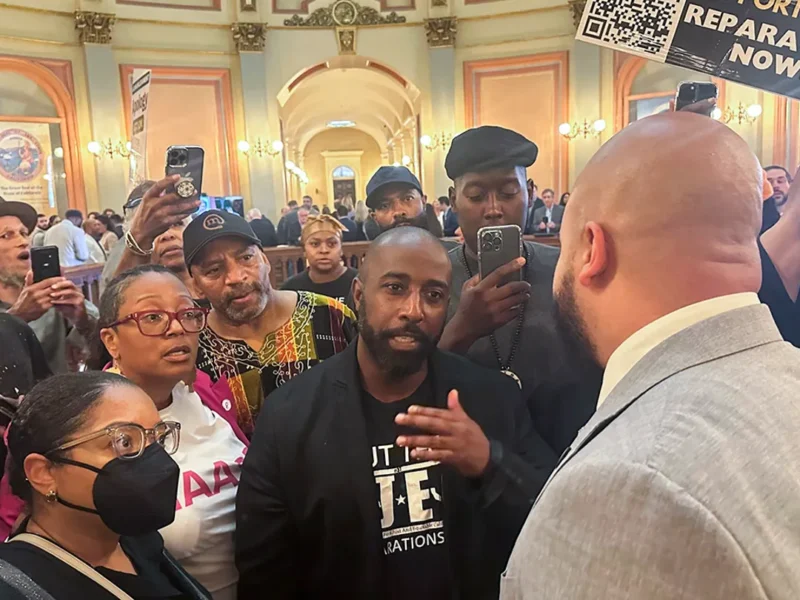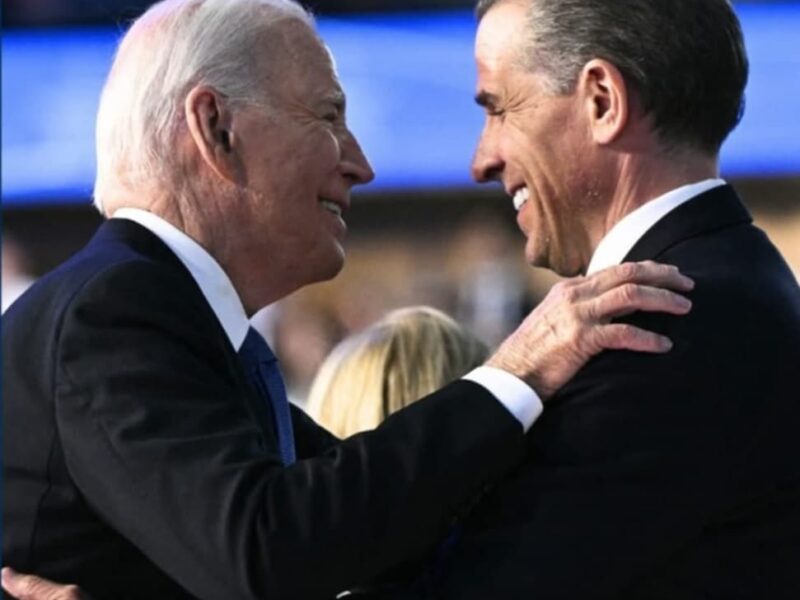Trump Changes Course on US Foreign Policy
For many years the United States has pursued a policy of international interventionism. President Donald Trump is changing this approach and is setting a new foreign policy doctrine. The course change has upset many in the defense and intelligence establishment and has the Washington DC establishment going absolutely ape. Frequently, the American people have voted for fewer interventions in foreign wars; candidates often promise as much and once elected go on intervening. Finally, the United States has a President who is keeping his promise.

Interventionism
In 1995 European leaders, too collywobbled to act on their own, begged President Clinton for US intervention in Bosnia. Republicans scoffed that the intervention was unnecessary. In 1999 the Clinton Administration conjured a useless and unnecessary war with Serbia to draw attention away from the impeachment trial. In the 2000 race President Bush spoke of reduced US interventions in “peacekeeping” missions and unnecessary wars. He delivered interventions in Iraq and Afghanistan. The latter had very real implications for US security in that Al-Qaeda operated from there. Since the defeat of Al-Qaeda and Bin Laden’s death, what vital US interests are now at stake? Democrats assailed the war in Iraq calling it “the wrong war.” President Obama also promised reduced foreign interventions in his 2008 campaign. His administration intervened in Libya and protracted the Afghanistan war. In 2014, amid significant domestic opposition, the Obama administration intervened in Syria as part of the Iran nuclear program negotiations.
In other words, many voters want fewer wars so politicians talk up peace during their campaigns; then embrace intervention once in office. Meanwhile, the opposition agitates against war to score points with voters only to abandon them once in office. Democrats and Republicans have both embraced the same approach.
When Donald Trump announced his intention to run for President in 2015, his first target was the Republican establishment. He criticized the Iraq invasion during debates held prior to the South Carolina Primary in 2016, where former President Bush was still quite popular. Trump went on to win that primary, crushing sixteen other well financed opponents. During the campaign Trump called for a border wall to secure the southern border and reduced US interventions in foreign conflicts. More establishment candidates like Jeb Bush attacked Trump for being weak on foreign policy. Having beaten the Republican establishment, Trump turned his attention to the Democrats. Hillary Clinton struggled against Bernie Sanders in the Democrat primary. Among the issues the issues of high import to the “Sandernistas” was fewer foreign wars. The DNC had to rig the primary in order to secure Clinton’s nomination. Once nominated, Hillary gave little indication she planned to reduce US involvement in foreign wars. Donald Trump ultimately bested her in that contest.
Since winning the Presidency, Trump has done something few other Presidents have done: he has actually tried to fulfill all of his campaign promises. The border wall will be built and the US will earn more than enough tax revenue from increased trade with Mexico under the new USMCA trade deal to cover the cost of the wall’s construction; thus fulfilling the promise that Mexico will pay for the wall. Trump is also reducing US involvement in foreign conflicts by pulling out of Syria and most US forces from Afghanistan. So this policy, which is obviously one supported by the vast majority of the American people should be met with nearly universal acclaim, right? That is just not the nature of politics in what author Tom Del Beccaro calls the Divided Era (click her to learn more).

Pulling Back
President Trump recently announced that the US would be withdrawing from Syria entirely and would be removing half of its forces in Afghanistan. Defense Secretary “Mad Dog” Mattis chose to resign over disagreements with the President’s new policy direction. Many others have come forward in the defense and intelligence establishments to complain. Members of Congress are likewise attacking the President’s position. This is a symptom of the larger problem that brought Trump to office in the first place: Washington is wholly out of touch with the desires of the American people. For decades, no matter how the votes were cast, the government has continued with the same policies.
Trump represents an effort to restore the voters to power. Unbeknownst to Washington, the American people overwhelmingly desire border security, which the wall represents. Americans are also tired of constant warfare. President Trump is acting upon his promises. Even many Americans of the leftward persuasion are quietly in support of the President’s policy.
What are the consequences of this decision? In Afghanistan the US scored early successes in 2002. Seventeen years later, a long-term quagmire and endless conflict are all that greet US forces in Afghanistan. Iran supplies the Taliban and they have the protection and backing of the Pakistani government. Given the terrain and the conditions in Afghanistan, a total victory is impossible. How much longer will the US continue with this conflict? At what point will the Aghani government take over the fight? While enjoying US protection the government continues to be corrupt, drugs are flowing from Afghanistan in unprecedented quantities, and human trafficking is rampant. What exactly are US troops protectinDuring the campaign President Trump spoke of destroying Islamic State (IS) in Syria. At the time he said it would be necessary to seek the help of the Russians, who back Bashar Al-Assad’s collapsing regime. Upon taking office as President, Trump has pursued the destruction of Islamic State apace. He cooperated with Russia, with the Sunni rebels, the Kurds, and with Turkey as promised. Today, IS has been destroyed. They no longer control any significant territory in Syria or Iraq, their capital has been liberated, and their financial backing has been choked off. The mission has been completed. Why should US forces remain? What exactly are they going to accomplish there? Meanwhile, American lives continue to be at risk. Some have argued that IS could return. How exactly is that supposed to happen? Assad and his Russian and Iranian allies want IS destroyed. There are Sunni groups in Syria that oppose IS too. Finally, the Kurds will continue their struggle. The war against IS, what remains of it, will continue.
Many have portrayed the US withdrawal as a betrayal of the Kurds, whom the US has promised to protect. The primary threat to the Kurds today is Turkey, their long-time foe. Turkey has a large Kurdish minority and has been eager to crackdown on Kurdish forces in Iraq and Syria to prevent them from making trouble in Turkey proper. Turkey has made frequent incursions into Syria to attack the Kurds. It is not the mission of US forces, however, to protect the Kurds. The mission of American forces was the defeat of IS, an organization that threatened US interests. Shortly after President Trump’s withdrawal announcement, Saudi Arabia and the United Arab Emirates announced their intention to send forces to Kurdish towns in Syria to protect the Kurds. Clearly, if other governments are willing to undertake this mission, it is no longer necessary for the United States to do so. There are other ways to help the Kurds: perhaps it is time for the United States to offer military aid directly to the Kurds and greater military capabilities, such that the Kurds could more easily look to their own security.
The strange argument has also arisen that somehow this withdrawal is bad for America’s strongest ally in the Middle East, and the region’s only stable Democracy: Israel. When it comes to protecting their security, the Israelis have shown a particular prowess. Whether the US is involved in Syria or not will change little about Israel’s security situation. Jerusalem Post columnist Caroline Glick discusses the ramifications for Israel in greater depth. In fact, the US withdrawal will require the Arab governments to take a greater role in the region. Saudi Arabia, Egypt, and Jordan also have it in their best interests to prevent the rise of militant Islamic groups. The increasing influence of Iran is being felt in the region in the Yemen conflict, in Syria, and in Iraq, and Arab governments have begun to cooperate more closely with Israel in their own defense needs. The Arab governments know they cannot take on Iran directly without Israel’s help. Thus, the tension between Israel and the Arab governments has been thawing. If anything, Trump’s policy will only accelerate this process.

Popular Support
Polls have long shown that Americans overwhelmingly oppose, in principal, US intervention in foreign wars. A poll taken in over a year ago (before the recent announcement and thus unbiased by it) found that over 86% believed US military forces should be used only as a “last resort.” Reduced intervention also has bipartisan support: 78% of Democrats, 65% of Republicans, and 70% of Independents polled supported restraining military actions overseas. Nearly 79% of those polled wanted to establish clear goals prior to military involvement. Over 70% even supported legislation to reduce US intervention overseas. Yet, when President Trump announced a policy effectively enacting a program in keeping with these poll findings, and fulfilling his campaign promise, he was met with severe opposition from the Washington establishment.
The American people have been awaiting the day when a President would finally change this approach to foreign policy. Slowly, Americans are being restored to preeminence in the operations of their government. The Washington establishment is going bonkers because they know, once established, this policy will be popular. That will mean budget cuts for certain defense and intelligence projects, which will effect the bottom line for many influential donors and thus upon the campaign coffers of many politicians.
In the 1950’s President Dwight D. “Ike” Eisenhower warned the American people of the evils that might result should the Military Industrial Complex become too powerful. Ike was right: during the Cold War billions of dollars went into every conceivable military project. The war in Vietnam raged on in spite of popular opposition. Countless interventions have followed in conflicts that average Americans have struggled to understand. Yet, most this spending did nothing to abate the conflict and only escalated tensions.
It is time we the American people came first in our nation’s foreign policy, ahead of those whose budgets, profits, and campaign finances depend upon endless conflict.






